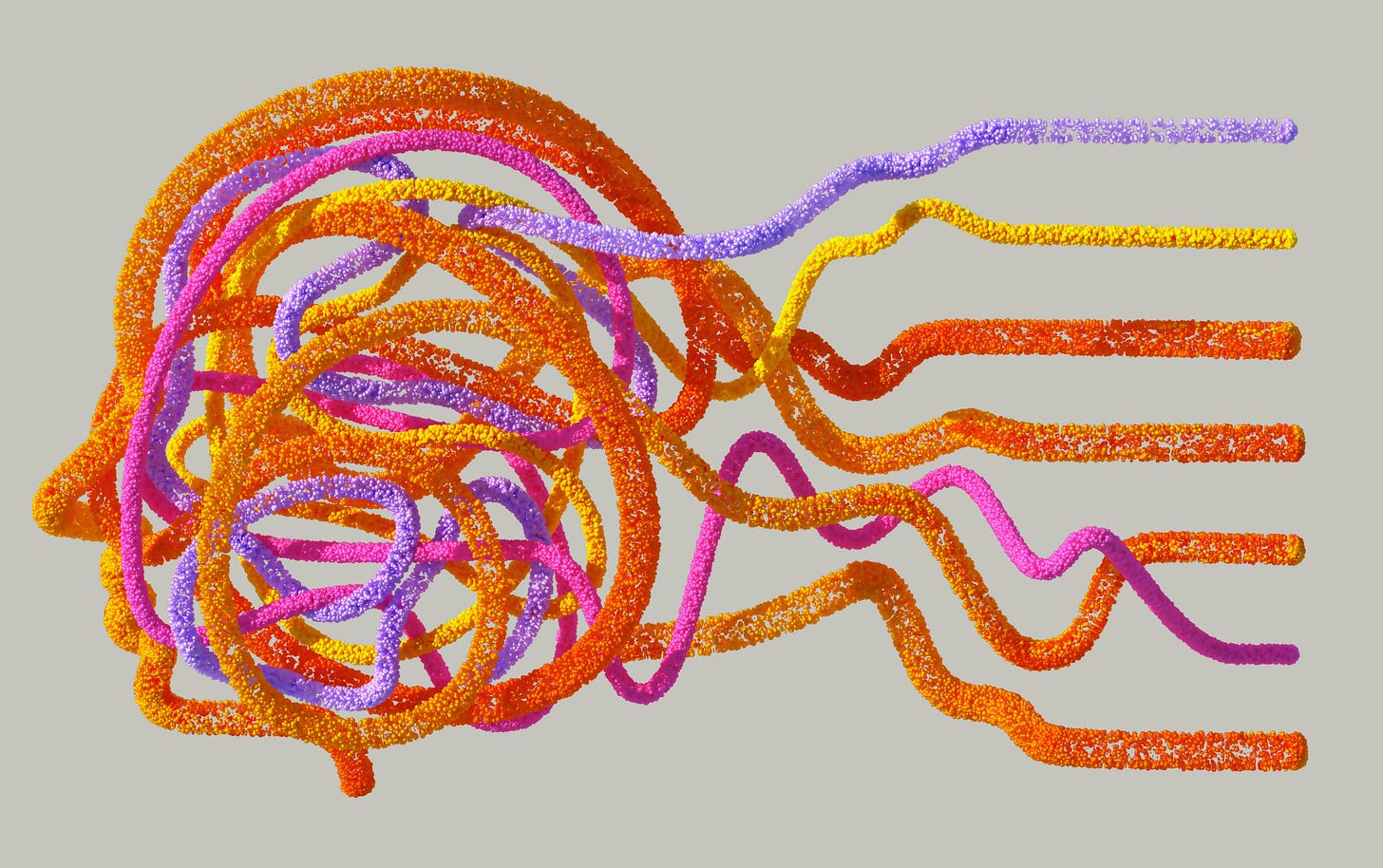Brain science and the amazing realization that you are not stuck
You’re not stuck, you’re just soft-wired
Remember back in the day when we all thought our brains were like a stone tablet? Set at birth, unchangeable, and basically the reason why that one math class was a total disaster? We were fed this idea that our genes were our destiny, like some ancient prophecy. "Oh, you’ve got that bad-at-math gene. Sorry, it's in the stars." But guess what? That’s all a giant myth.
Turns out, the brain isn’t some rigid, pre-programmed machine. Nope, it’s more like a squishy, adaptable sponge that changes based on our life experiences. They call it “soft-wiring,” which, yes, sounds like a strange setting on your washing machine, but it’s the key to understanding how much control we actually have over our thoughts, emotions, and behaviors.
Nature vs. Nurture? Meet: You, rewiring your own brain
Let’s rewind to the 1980s and 1990s. The media was all about how our genes controlled everything. You were either born with the “good at life” gene or stuck forever in the “oops, better luck next time” zone. It was a full-on nature vs. nurture battle, and nature was winning the headlines.
But brain science, being the rebel it is, threw a wrench in that whole storyline. The truth is that genes lay the groundwork—potential and vulnerabilities—but they don’t get the final say. In fact, you can nurture the heck out of your nature. The brain you have right now is a product of every experience you’ve had so far, good, bad, and Netflix binge-y.
Now, instead of being stuck with the brain you were born with, you can literally rewire it. (This is the part where the 1980s would've thrown in a montage of you doing push-ups and staring at complex math equations with intense determination.)
Why this matters right now
Here’s the deal: life is stressful. We’re juggling jobs, relationships, the news (ugh), and this weird thing called “adulting” that no one ever warned us about. So it’s no wonder we feel anxious or overwhelmed. But what if I told you that some of those feelings aren’t because “life is just too hard” but because your brain is in an outdated operating mode? You’ve been reacting to the world based on old wiring, not realizing that you can upgrade the system.
Here’s where the empowerment kicks in. You might feel guilt about procrastinating, anxiety about a new project, or just dread about Monday mornings. But once you understand that your reactions are influenced by how your brain has been trained to respond over time, you start to see the escape hatch. You can retrain your brain. Yes, that same brain that used to convince you staying up until 2 AM watching YouTube was a great idea.
Example: The power of rewiring
Let’s say you always freak out during presentations. Your heart races, palms sweat, and your brain just blanks out. You’ve always told yourself, "I’m just not good at public speaking. It’s in my genes."
Not true.
This is where brain science gets fun. Every time you do something new—like practicing calming techniques or mentally rehearsing a successful presentation—you’re forming new neural connections. The more you practice, the stronger those connections get. It's like walking down a forest path over and over again. Eventually, the path becomes clear and easy to walk through.
Exercise #1: Catch the old wiring in action
Try this: the next time you catch yourself reacting in a way you wish you didn’t—maybe it’s procrastinating, self-doubt, or stress—pause. Ask yourself, “Is this really me, or is this just my brain doing its old thing?” By acknowledging that this is just an outdated brain response, you’re taking the first step to rewiring it. You don’t have to be a slave to that reaction. You’ve just given yourself some breathing room to respond differently next time.
Exercise #2: Practice mental rehearsal
Want to change how you react to stress or anxiety? Use mental rehearsal, a fancy term for imagining success. Think of something that normally stresses you out. Now, close your eyes and visualize yourself handling it like a pro. Feel your calm breath, see yourself making decisions confidently, and imagine the outcome being exactly what you wanted. Do this regularly, and you’re not just daydreaming—you’re literally carving out new neural pathways in your brain.
The Takeaway: Your brain is a work in progress (and that’s a good thing)
We all have those moments when we feel stuck. Maybe you’re thinking, “I’ve always been this way. I’m too old to change.” But your brain doesn’t care about your age. It’s constantly changing, adapting to new experiences, and reacting to how you train it.
You’re not stuck with who you were yesterday. The key is to start small, notice your reactions, and practice new ways of thinking and behaving.
Your brain is your greatest tool—it just needs a little rewiring now and then. And the best part? You’re in charge of it.
In harmonious mental health,
Becky Gosky, Neuro Shift



